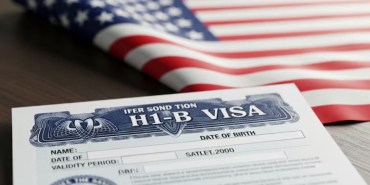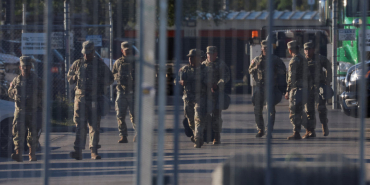US May Tighten or Terminate OPT, Raising Alarms for International Students

The US Optional Practical Training (OPT) programme, which allows international students to work in the US after graduation, is facing increasing political and regulatory pressure that may change the programme significantly.
The OPT programme allows foreign students with F-1 visas to work temporarily for up to 12 months in a job related to their studies. Those in science, technology, engineering, and mathematics (STEM) fields can extend this for an additional 24 months. In 2024, over 194,000 foreign students received work authorisation through OPT, and another 95,000 benefited from the STEM extension. The programme has become important for international students seeking employment after their studies. However, there are now questions about its future.
Some critics, aligned with former President Trump's policies, are calling for the programme to be terminated. They question whether the Immigration and Nationality Act legally authorises post-study employment for F-1 students. Joseph Edlow, a former official at the Department of Homeland Security who is expected to lead US Citizenship and Immigration Services (USCIS), has argued that the OPT programme lacks a clear legal basis.
Jessica Vaughan, Director of Policy Studies at the Centre for Immigration Studies, agrees, suggesting that Congress should review visa categories and consider stricter controls or even eliminating certain employment-based provisions. Some conservative politicians believe that post-study work programmes could harm domestic labour protections or bypass legislative oversight.
In addition, there are proposals to impose new taxes on OPT participants. Currently, international students on OPT are exempt from Federal Insurance Contributions Act (FICA) taxes, meaning they do not contribute to Social Security or Medicare. Proposed legislation seeks to remove this exemption, which would subject students to a combined tax rate of 15.3%. This could significantly reduce their earnings and discourage future applicants.
Regulatory enforcement has also become stricter. The Student and Exchange Visitor Programme (SEVP) has warned F-1 students that they could be deported if they do not report their employment within 90 days of starting their OPT. Immigration and Customs Enforcement (ICE) has also reported cases where students are unaccounted for in the SEVIS tracking system, raising concerns about transparency.
Federal authorities are also cracking down on fraudulent employment practices related to OPT. Investigations have found cases where employers create false payroll records to make it appear that students are employed, allowing them to maintain their visas without actually working. USCIS has labelled this as immigration fraud and warned that it could lead to the cancellation of the I-20 form, which is essential for students to maintain their legal status in the US.








Add new comment